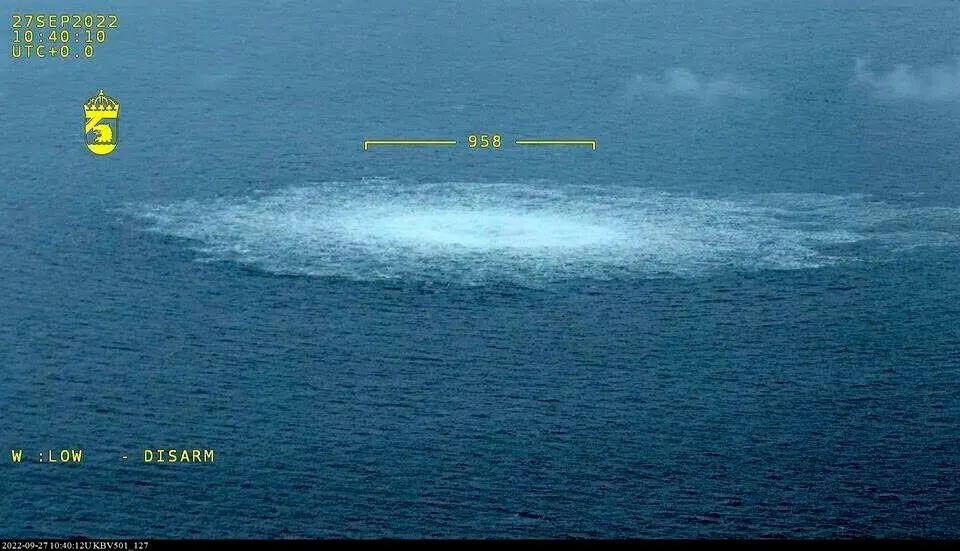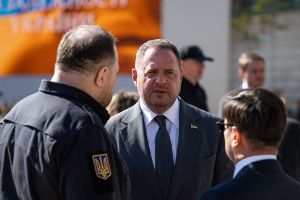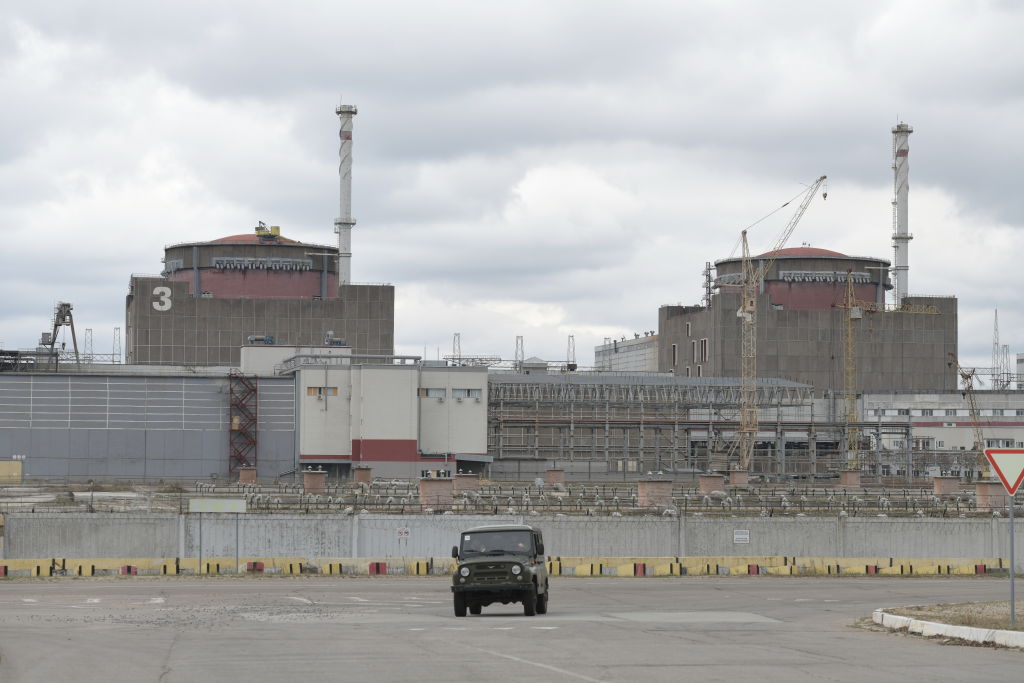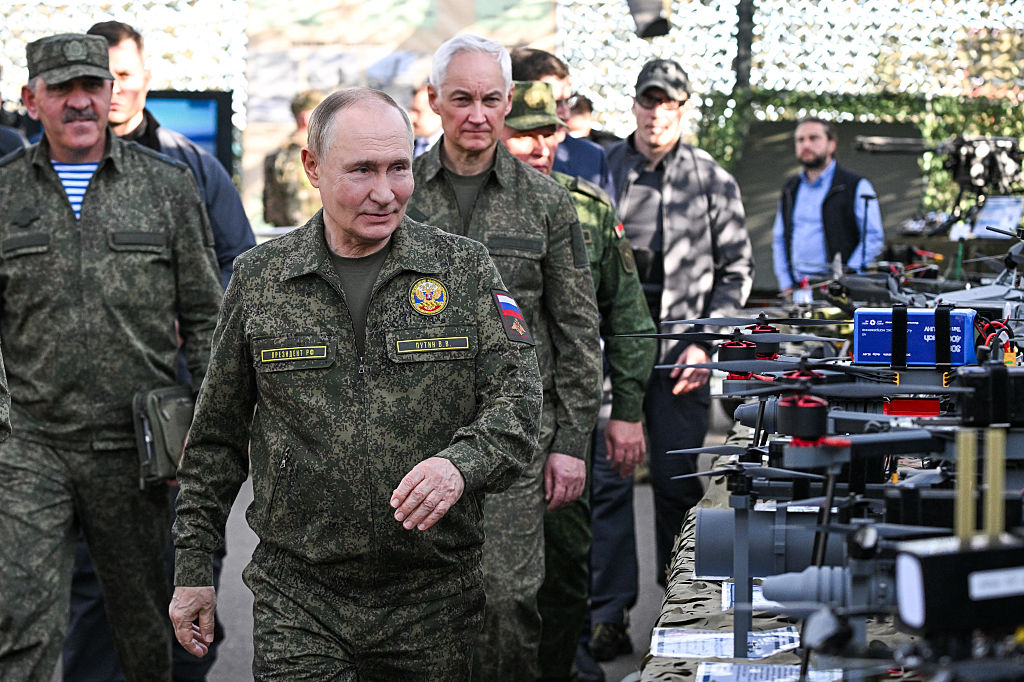When three of the four Nord Stream gas pipelines connecting Russia to Germany were destroyed by unknown saboteurs in September 2022, Ukrainian presidential adviser Mikhailo Podolyak described the bombing as “a terrorist attack planned by Russia and an act of aggression towards the EU.” The attack — which knocked out the route through which Germany had previously received 30 percent of its gas supplies — was designed to “destabilize the economic situation in Europe and cause panic before winter,” Podolyak wrote on Twitter.
But there was one crucial detail that Podolyak failed to mention: compelling evidence is emerging that it was not Russia, but Ukraine that organized the “terrorist” attack. Moreover, according to a major investigation by the Wall Street Journal (WSJ) published this week, US intelligence was forewarned about the operation and attempted to prevent it — only to be ignored by the Ukrainians.
The picture that is emerging is of a small, highly professional group of civilian and military saboteurs operating with the support and direction of the Ukrainian military and the sanction of Volodymyr Zelensky himself — but funded privately and operating independently. The carefully planned attack on the seabed pipeline destroyed €20 billion of investment and at a stroke broke Russia’s ability to subject European countries supporting Kyiv to energy blackmail. The attack also crashed Gazprom, a mainstay not only of Russia’s economy but also of the Kremlin’s coercive gas diplomacy.
But at the same time, the destruction of Nord Stream was also an act of war against critical Nato energy infrastructure. “An attack of this scale is a sufficient reason to trigger the collective defense clause of Nato,” a senior German official familiar with the ongoing investigation told the WSJ. “But our critical infrastructure was blown up by a country that we support with massive weapons shipments and billions in cash.” The definitive removal of cheap Russian gas also played a key role in transforming Germany’s economy from one of Europe’s most dynamic to its most stagnant, with growth forecasts now at just 0.1 percent for 2024. As such, the Nord Stream attack ranks as one of the most successful and strategically consequential covert operations in the history of warfare. And the information that the strike was in fact masterminded by Ukraine has been held as an explosive and closely guarded secret for fear of triggering an anti-Kyiv backlash among the German public — though The Spectator published a detailed report on the swirling rumors as early as March 2023. But it was only this summer that German prosecutors issued their first arrest warrant for one of the suspects — effectively the first time any western government has officially accused Kyiv of involvement — and even that warrant was confidential before details were revealed this week by the WSJ.
The idea of attacking the Nord Stream pipeline was hatched by a handful of senior Ukrainian military officers and businessmen over a dinner in Kyiv in May 2022, according to multiple Ukrainian sources with direct knowledge of the plan interviewed by the WSJ. The operation would be funded by private individuals but overseen by a serving Ukrainian general with experience in special operations in an arrangement that one participant described as a “public-private partnership.” According to the Journal’s sources, Ukraine’s president Volodymyr Zelensky approved the plan on the grounds that the Gazprom-owned pipeline was a legitimate military target. However, destroying Nord Stream would also constitute a direct attack on the critical infrastructure of Germany — a key ally of Ukraine in its deadly struggle to repel Russian invaders. The operation, therefore, would have to be conducted at arm’s length and in total secrecy.
By the end of June 2022, however, the Dutch military intelligence agency MIVD had got wind of the Nord Stream sabotage plan. Since 2014 the Dutch had developed a large network of agents in Russia and Ukraine in their quest for information on the shooting down of Malaysia Airlines Flight 17 over the eastern Donbas region, which killed all 298 passengers and crew on board, including 193 Dutch citizens. Among their contacts was Roman Chervinsky, a decorated Ukrainian colonel who had previously served in Ukraine’s main security service, the SBU. Chervinsky was, by his own admission, involved in “planning and implementing” operations to “abduct a witness” who could corroborate Russia’s role in the MH17 tragedy — and was also, according to a detailed investigation by the Washington Post and Der Spiegel in November 2023, a key organizer of the Nord Stream clandestine mission. (Chervinsky himself formally denied involvement in the Nord Stream attack, though praised its effectiveness.)
The Dutch immediately warned their colleagues in the US’s Central Intelligence Agency, according to sources in the MIVD and the CIA cited by the Journal. The US in turn urgently demanded that Zelensky call off the mission. Ukraine’s president reportedly agreed and ordered his then army chief General Valery Zaluzhny to stop the saboteurs — only to be told, according to the Journal’s sources, that the group was already out of contact and could not be recalled.
What happened next has been documented in forensic detail by German law enforcement. On September 6, 2022 the 15.57-meter, 11-berth German-flagged Bavaria Cruiser 50 motor yacht Andromeda set sail from the Hohe Düne marina in the Baltic port of Rostock. She had been hired from Mola Yachting GmbH for 2,998 euros (£2,600 or $2,200) a week by a Polish company owned by two Ukrainians. At least six passengers were on board — all of whom were carrying forged passports, one of them Bulgarian. The yacht was not, because of its size, required to carry an AIS (Automatic Identification System) — but OSINT sleuths combed through marina security camera footage and docking records and found the Andromeda at Sandhamn then Christiansom and Wiek on the island of Rügen on the days before and after the explosions. Undersea cameras found that three of the 2.8 cm-thick steel pipelines lying at a depth of 80 to 90 meters on the Baltic seabed had been breached by explosive charges and then catastrophically exploded under the 120-bar pressure of the gas contained inside them. In January 2023 the Andromeda was searched and the German public prosecutor’s office confirmed that traces of explosives had been found aboard.
In June 2024 German Federal Public Prosecutor Jens Rommel issued a confidential arrest warrant for a Ukrainian citizen and professional diver who allegedly masterminded the operation. The suspect was thought to be in hiding in Poland — but Polish authorities made no arrests, and to the intense frustration of the German police the suspect is believed to have since returned to Ukraine, people familiar with the investigation told the WSJ. Indeed in the wake of the failed arrest the former chief of German intelligence agency BND August Hanning has publicly accused the Polish government of complicity in the Nord Stream attacks. “Pretty evidently, the Polish agencies were engaged,” Hanning told the German ARD broadcaster this week. “These are decisions that were made at the highest political level. And I think that there was an arrangement between Zelensky and [Polish] President [Andrzej] Duda to carry out this attack.” Henning also accused Poland of tipping off the suspects rather than cooperating with German police.
Many commentators have rushed to justify and defend the Nord Stream operation. “Ukraine’s destruction of Nord Stream 2 is entirely justified,” wrote Professor Luis Garicano of the London School of Economics. “The country is fighting for its existence! Europe should grow some guts and some understanding of what is at stake. And Germany needs to lay off this ridiculous criminal procedure.” But in truth the revelations come at a bad time for Zelensky. German public opinion has been steadily shifting towards backing peace in Ukraine, and limiting the use to which German-supplied missiles and rockets can be put. The right-wing AfD wants to repair the Nord Stream pipelines and reopen the one surviving line as soon as possible, while left-wing BSW party has called for the immediate halting of all weapon deliveries to Kyiv “in view of the Zelensky disclosures.”
Though the German criminal investigation has revealed many forensic details of the operation, there are still many uncomfortable unanswered questions in the narrative presented by the WSJ’s sources. One is Germany’s reluctance to admit that it came under a terror attack by a country it helps fight a war. Another is Hanning’s sensational accusation that Poland is not only shielding suspects and stalling investigation but also could have played an active role in the bomb plot. The story of Zaluzhny’s disobedience which helpfully helps cover Zelensky’s backside is also a little hard to believe — especially as Zaluzhny has since been fired. And perhaps strangest of all is the idea that Ukraine would have proceeded with a sabotage plan of such extraordinary recklessness apparently against the will of the United States and beyond the control of the CIA.
The story of the Nord Stream plot, already extraordinary, promises to yield more revelations soon.
This article was originally published on The Spectator’s UK website.


























Leave a Reply